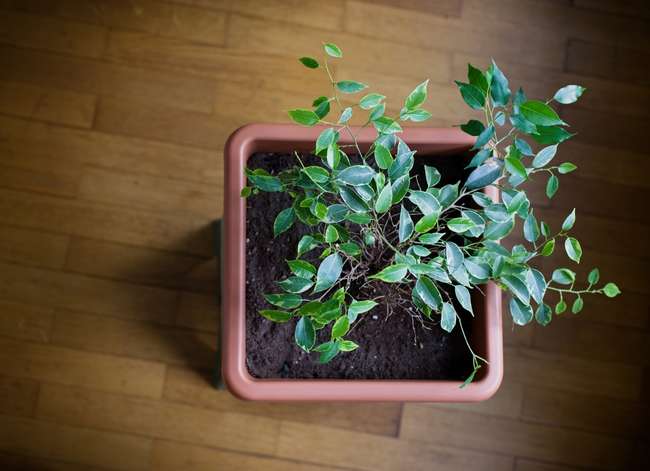

We may earn revenue from the products available on this page and participate in affiliate programs. Learn More ›
Home Advice You Can Trust
Tips, tricks & ideas for a better home and yard, delivered to your inbox daily.
Shedding Light on Indoor Trees
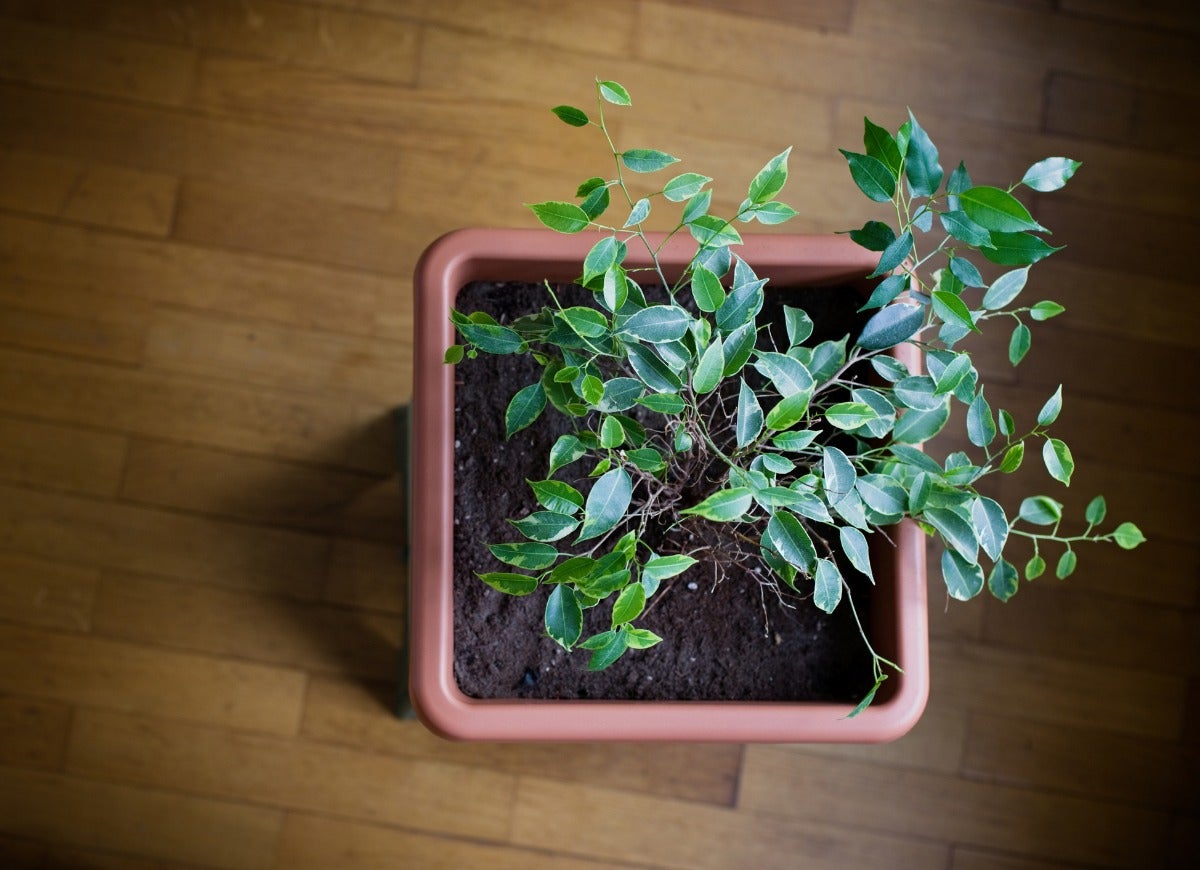
Low-light indoor trees are those that require no direct sun. The ones listed here should more correctly be called medium-light plants, since they will need between 100 and 500 foot-candles of light to thrive. (You can measure foot-candles with a light meter or some phone apps.)
Still, it is possible to grow low-light indoor trees, if you know what to look for in selection and care. If their foliage begins to look dark and gangly, they probably aren’t receiving enough light. If, on the other hand, their leaves appear pale and shrinking, they are getting too much. As for which ones to choose, begin by going “biblical” with figs and palms.
Weeping Fig (Ficus benjamina)

The most popular indoor tree for good reason, weeping fig attains heights of 10 feet or more indoors (and up to 50 feet outdoors), with branches that arch artistically. Keep in mind, though, that instead of dropping tears, the weeping fig often drops a fifth or more of its pointed oval leaves at summer’s end. The tree isn’t mourning the loss of the season, just assuring that it has no more foliage than it can maintain during shorter days.
Rubber Plant (Ficus elastica)
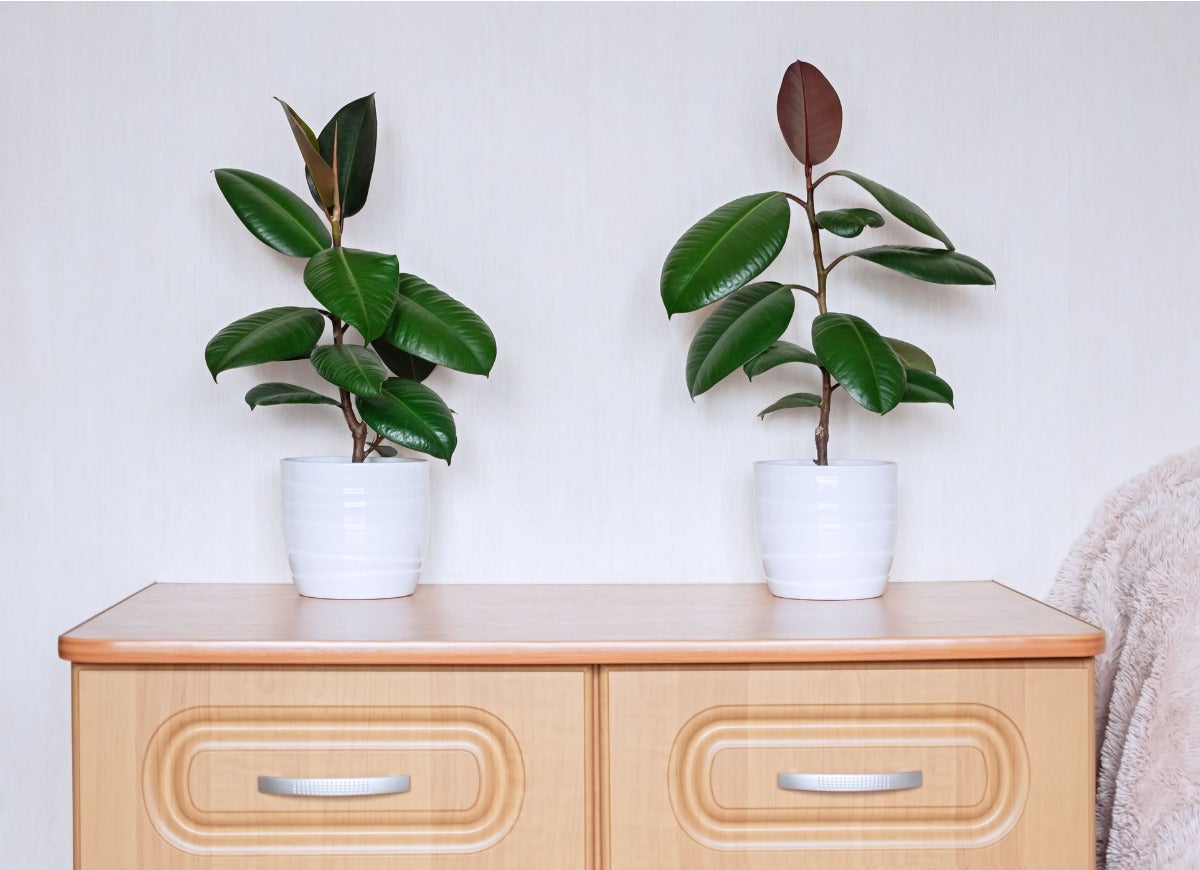
Although rubber plant may sound more like a Firestone than a fig, it definitely belongs to the ficus clan with its easy-growing temperament. Called “one of the most foolproof indoor plants” by the New Sunset Western Garden Book, the rubber plant sports glossy 8- to 12-inch leaves, which can vary from green to wine to variegated, according to cultivar. The plant might eventually reach 12 feet indoors, only a fraction of its 80-foot outdoor height, but it doesn’t burn rubber doing so.
Fiddle-leaf Fig (Ficus lyrata)
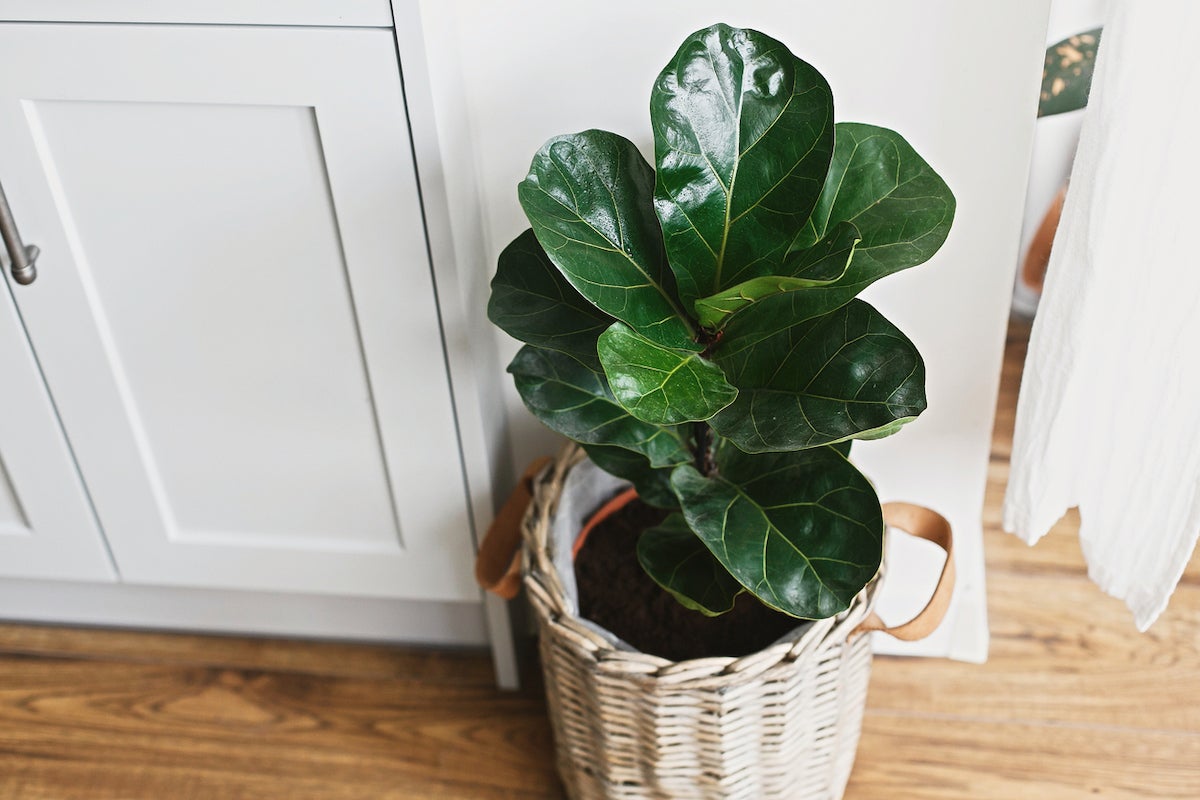
If you aren’t just fiddling around when it comes to large houseplants, you’ll want to try this fig, which produces 12- to 15-inch violin-shaped leaves when happy. More compact types such as ‘Little Fiddle’ make foliage only half that size. The original F. lyrata can reach 50 feet outdoors in Hawaii, and whatever height your ceiling is indoors. So, if that’s more fig than you figured on, you might want to opt for one of the under-6-foot “second fiddles” instead.
Parlor Palm (Chamaedorea elegans)
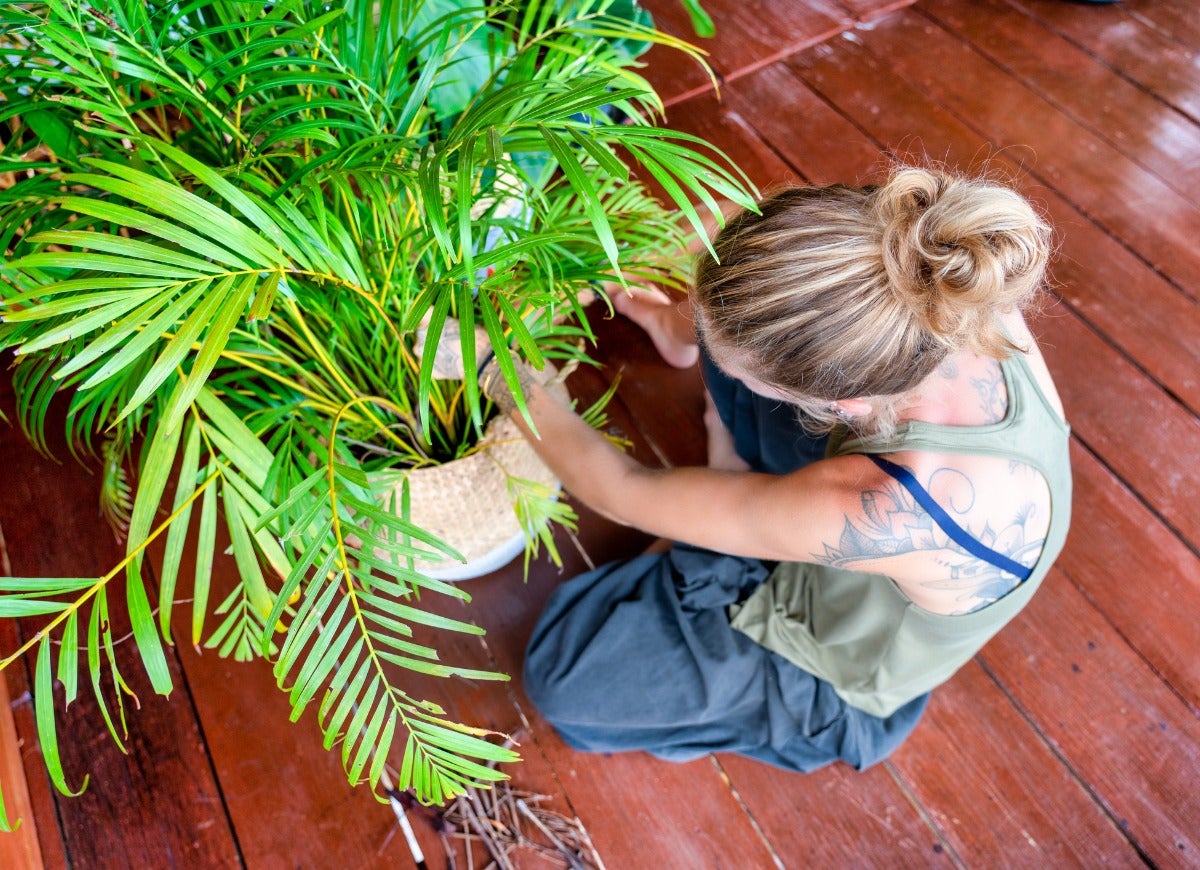
Named for the old-fashioned front rooms it used to grace, the parlor palm can grow to 10 feet outdoors, but usually maintains a diminutive height of only 4 feet or so indoors to avoid being a pushy guest. Lacking a parlor, you always can invite it into your front hall or living room instead, where it should maintain an elegant but self-contained air. The plant also can produce small yellow blooms, fragrant in female plants, and scentless in the male ones.
Lady Palm (Rhapis excelsa)
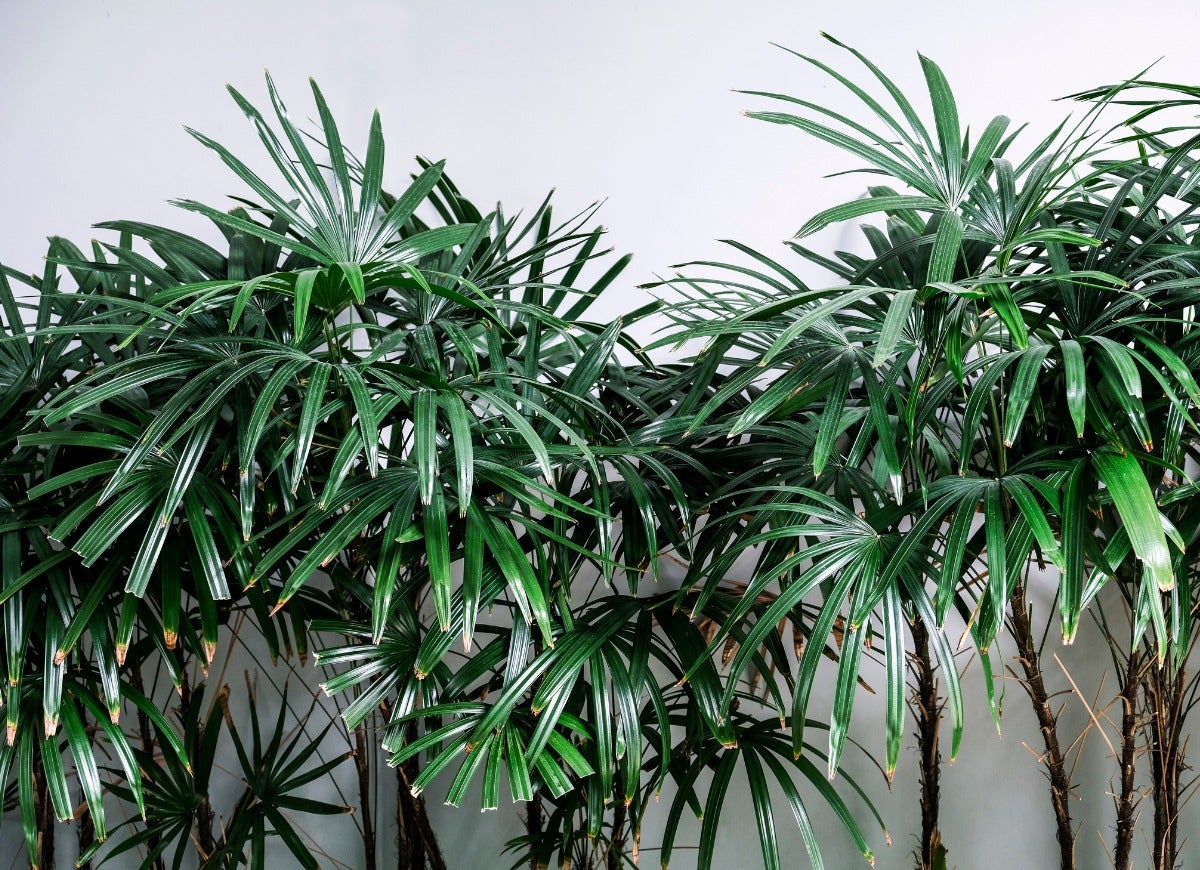
Speaking of old-fashioned females, the lady palm flutters green fans of foliage above fibrous brown canes in imitation of those long-ago belles of the ball. Called “one of the finest houseplants” by the New Sunset Western Garden Book, it can reach 15 feet outdoors, and possibly 10 feet indoors in a large container. But you can discourage its aspirations a bit by leaving it in a smaller pot. Like the parlor palm, it too wears yellow flowers in spring.
Norfolk Island Pine (Araucaria heterophylla)
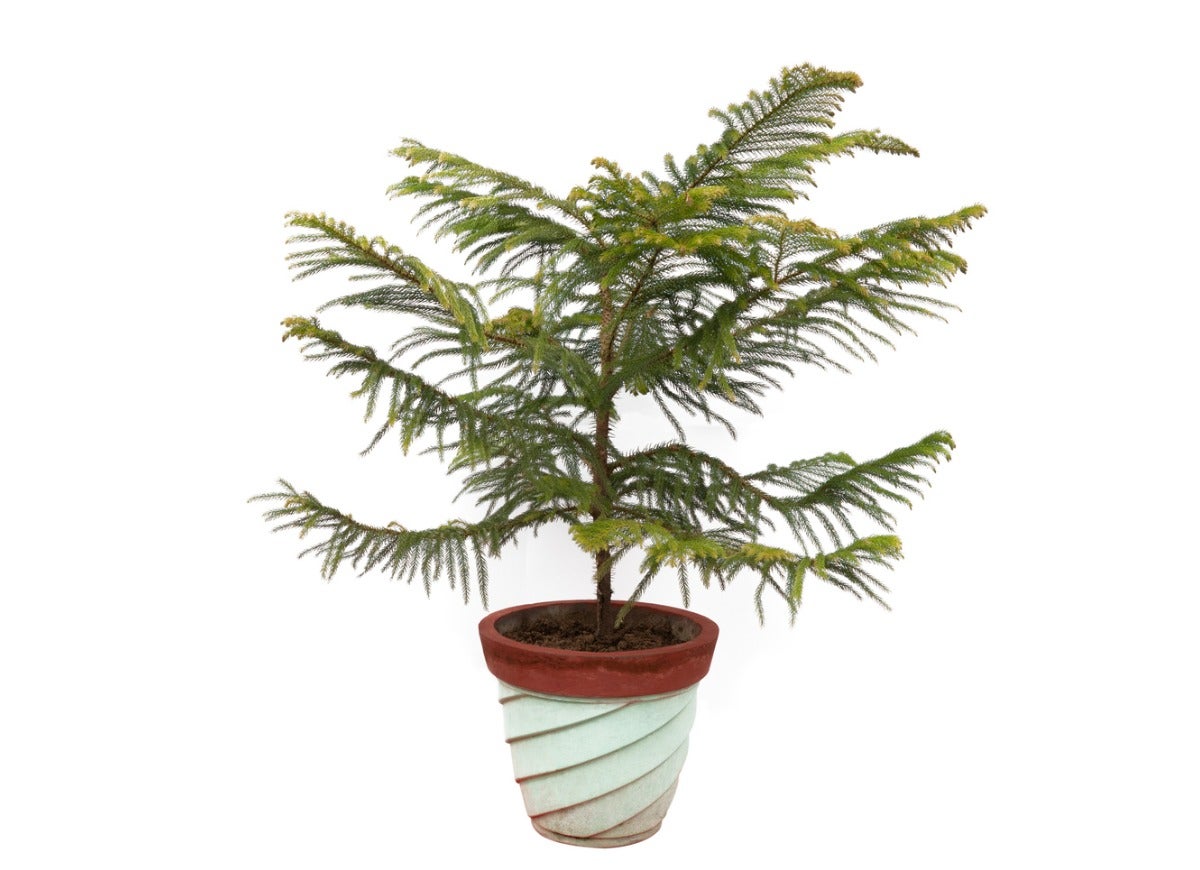
If you are pining after an indoor pine, pick up one of those potted specimens that line store shelves just before Christmas. Chances are, it will be the Norfolk Island type, since it is the only looks-like-a-Christmas-tree houseplant that tolerates the low light and humidity conditions prevalent indoors at that time of year. Although it can stand 200 feet tall in its island home, it isn’t likely to surpass 6 feet in yours.
False Aralia (Schefflera elegantissima)
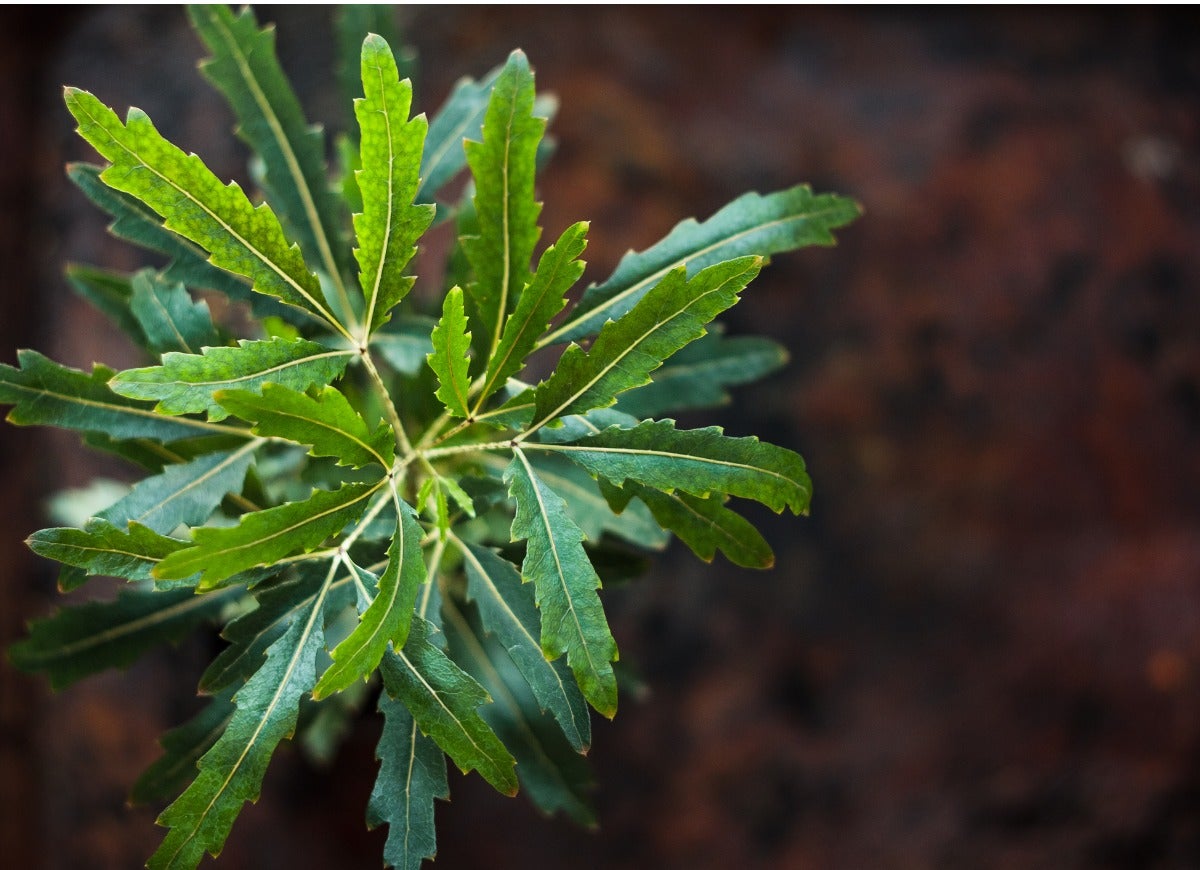
Also called finger plant or spider aralia for the narrowness of its copper to dark green serrated leaves, this plant is as slenderly elegant as a fashion model and grows 6 to 8 feet tall indoors, or up to 50 feet outdoors. It can make a stylish addition to your interior if you remember that its fine foliage may broaden and coarsen a bit as the plant ages.
Umbrella Tree (Schefflera actinophylla)
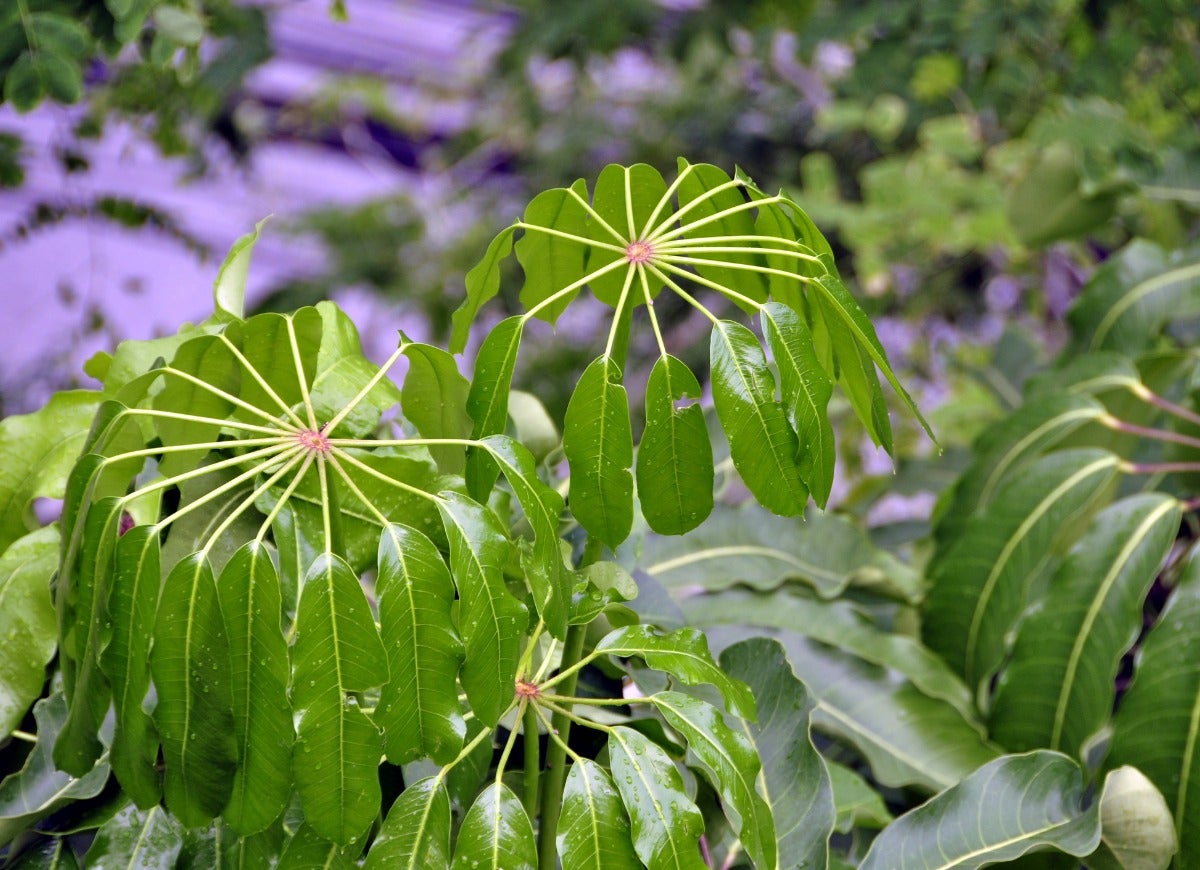
Composed of seven to 16 leaflets arranged in a spiral, this schefflera’s leaves resemble umbrellas when those leaflets hang down. Growing to nearly 50 feet outdoors, the tree may reach 15 feet indoors where ceilings are high—and where no one maintains superstitions about open umbrellas in the house! Although it can produce oddly octopus-like red blooms in the wild, those are rare on the indoor plants.
Money Tree (Pachira aquatica)

Money tree is right on the money when it comes to amiable houseplants. Although it can attain 60 feet heights outdoors, it generally tops off at 8 feet indoors with leathery hand-like leaves often positioned atop elaborately braided trunks. Its showy stamen-rich flowers, said to resemble heron feathers, seldom appear on indoor plants. But this plant is supposed to “give you a hand” in the luck department, which probably is where the money comes in.
Dragon Tree (Dracaena marginata)
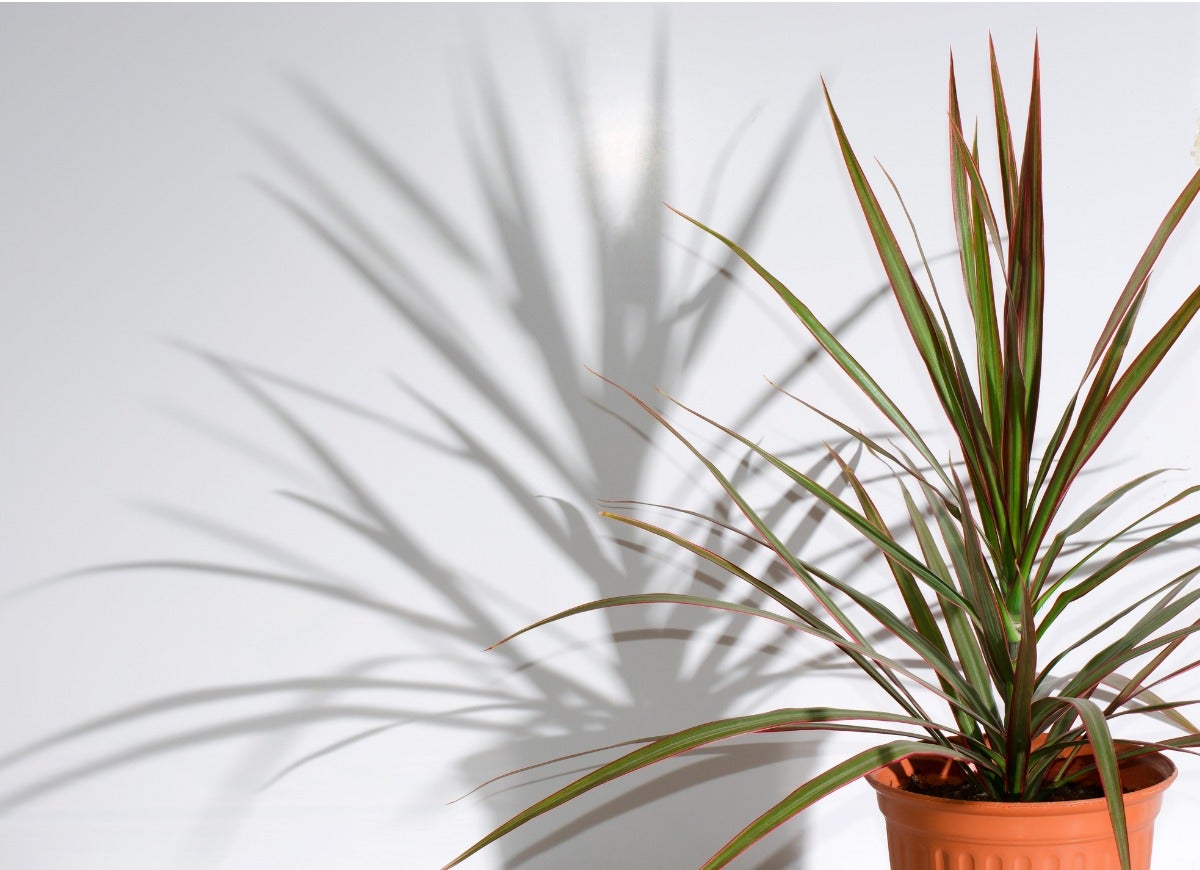
Although not particularly dragon-like, this tree has grassy foliage often edged in fiery red, which may explain its name. Tending to look a bit leggy, with a tuft of narrow leaves above skinny gray stems, it is for those who like the lean, lanky, and “long-haired” look in a tree. It can grow to 20 feet outdoors with tiny and highly scented white blooms in spring, and only to about 6 feet indoors with little likelihood of flowers.

All You Need to Care for Your Lawn & Garden
Keeping your grass green and your plants thriving doesn’t just take a green thumb—it starts with the right tools and supplies.